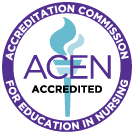How the Program is Structured
The RN-to-BSN program at Iowa State University is a distinctive blend of on-campus and online learning, designed to accommodate the busy schedules of working professionals. Students attend face-to-face nursing courses on Tuesdays, while completing the rest of their coursework online. This flexible learning format supports a rigorous curriculum that prepares students for success in their nursing careers.
What You Will Learn
Throughout the program, you will acquire knowledge, skills, and experience in four essential areas: research, leadership, population health, and self-care/health promotion. The program emphasizes providing professional and cultural care that respects the dignity and uniqueness of all individuals and populations. The learning experiences in the program will help you face new challenges with confidence and contribute to building a brighter future for yourself and the communities you serve.
Further Your Nursing Career
A Bachelor of Science in Nursing (BSN) degree provides several career growth opportunities for nurses, including the option to pursue a graduate degree in the nursing profession. There are several specialized nursing fields that a nurse with a bachelor's degree can explore. Graduates with a BSN can work as bedside nurses in various medical settings such as hospitals, clinics, and community health centers. They can also choose to pursue careers as health policy nurses, nurse informaticists, public or community health nurses, forensic nurses, clinical research nurses, nurse health coaches, and much more!
Program Accreditation
The RN-to-BSN program at Iowa State University is accredited by: Accreditation Commission for Education in Nursing (ACEN)
3390 Peachtree Road NE, Suite 1400 | Atlanta, GA 30326 | (404) 975-5000
The most recent accreditation decision made by the ACEN Board of Commissioners for the baccalaureate nursing program is initial accreditation.
View the public information disclosed by ACEN regarding this program at: https://www.acenursing.org/acen-programs-05202024/iowa-state-university-of-science-and-technology
The baccalaureate nursing program at Iowa State University of Science and Technology located in Ames, Iowa is approved by the: Iowa Board of Nursing (IBON)
6200 Park Ave, #100 | Des Moines, IA 50321
